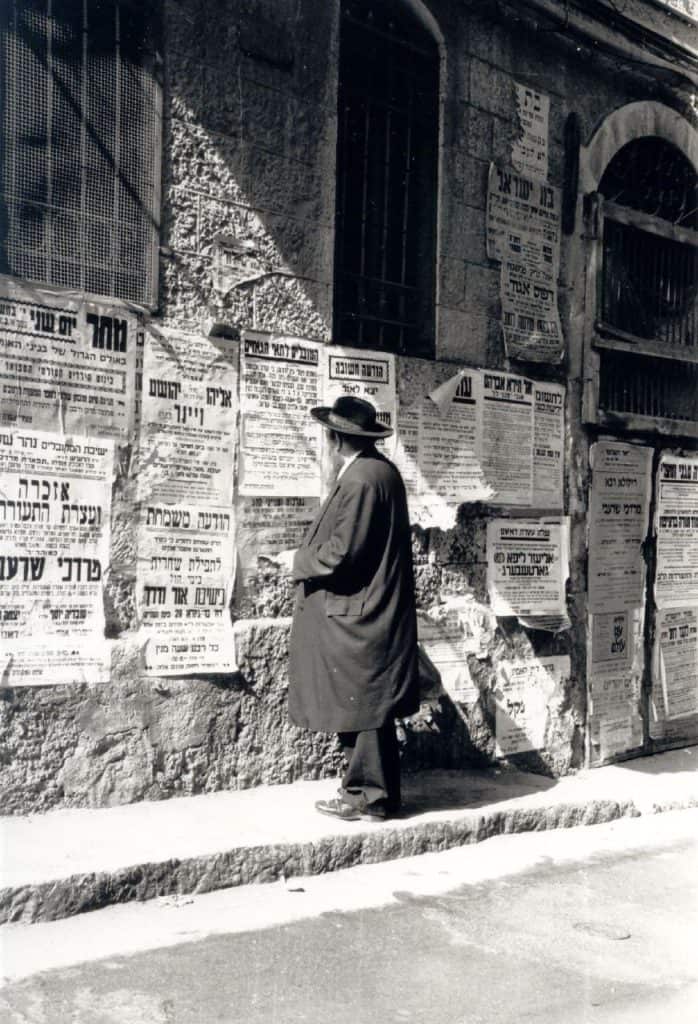A pashkevil is a broadside or poster that has been situated on a public wall or location in an Orthodox Jewish community and most commonly within Hareidi enclaves like in Mea Shearim, Jerusalem.

Credit: Ahron de Leeuw from Amsterdam, Netherlands, CC BY 2.0, via Wikimedia Commons
Pashkevilim is sometimes distributed anonymously; however, many are posted with rabbinic endorsements or the name of an activist group appended to the bottom. When I tour Jerusalem with my guests and pass via Mea Shearim, you can see it all over the neighborhood. Apart from the signs that tell you to walk modestly, they sometimes can also be in English that tourists can understand. On the contrary, the Pashkevils are in Hebrew or Yiddish since they are meant for the local Haredi Jews.
In a way, they serve as expressive media that show what those who prepare and post as well as those who allow the poster to be displayed (the latter by attending to its meaning and not removing or covering it) consider to be acceptable or worthy of notice. The informed observer can thus use such signs as a window through which to glimpse the appropriate behavior and what is on the mind of the community, its interests, and concerns.
Given the unique sociological insight to be garnered from their study; Israel’s National Library has begun to acquire private collections of pashkevilim to be preserved in a special section available for academic research. Pashkevilim is additionally used to inform people when someone passes away.

